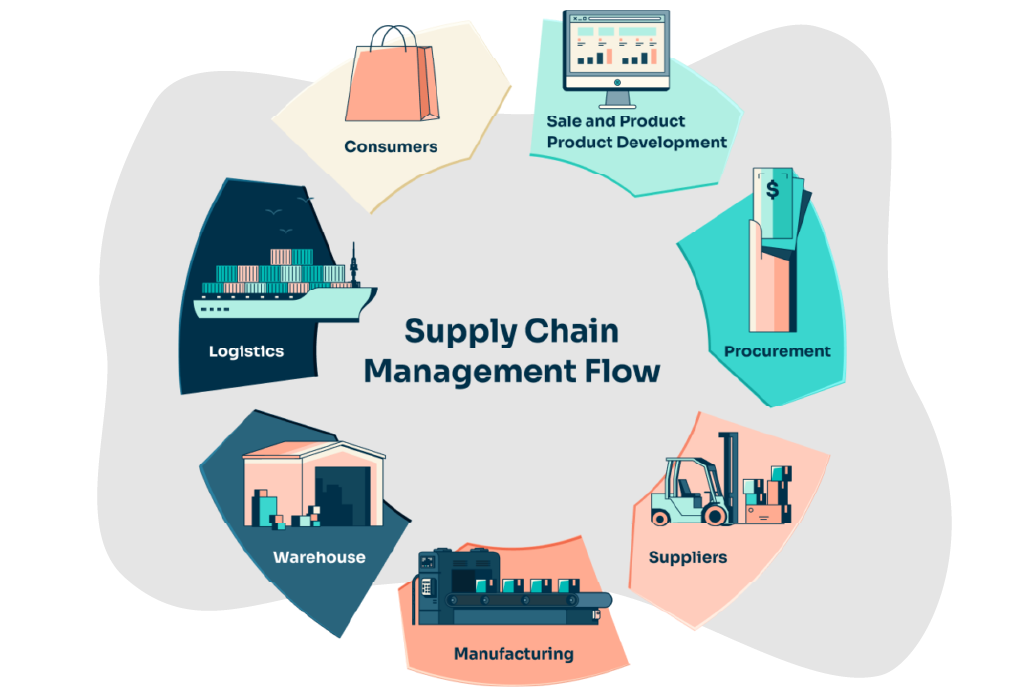Retail Renaissance: Illuminating the Data-Driven Horizon
Within the extensive fabric of commerce, the retail sector is a dynamic and always-changing force influenced by shifts in customer behavior, technology, and market trends. A Retail Renaissance is being ushered in by the revolutionary paradigm change that is being driven by the combination of data science and retail as we go through the digital era. In the present moment, the classic brick-and-mortar retail conceptual framework is changing, bringing in a new age where data-driven insights are redefining the fundamental aspects of consumer experiences. Global trade is primarily driven by the retail sector, which includes both huge internet markets and busy brick-and-mortar establishments. Every day, its subtleties influence customer inclinations, preferences, and purchasing patterns. However, the industry is suddenly gaining momentum as a result of data science’s introduction as a catalyst for hitherto unseen transformation.
Step into the data science era of retail, when strategic decision-making is based on mountains of transactional, demographic, and behavioral data. Understanding customer preferences, forecasting trends, and customizing the purchasing experience are made possible by data science. Retailers are given the ability to foresee, adjust, and prosper in a more competitive environment through this alchemy, which converts unprocessed data into actionable insights. Technology innovation is the paintbrush used to paint the retail canvas. The retail industry is evolving, starting with the introduction of e-commerce platforms and continuing with the incorporation of artificial intelligence. There are lots of retail data science use cases and the combination of technology and data science project in retail industry not only improves operational effectiveness but also opens up new possibilities for developing unmatched client experiences. The combination of data science and retail technology emerges as a beacon as we set out on this revolutionary adventure, leading the sector to previously undiscovered heights of success.
Technology innovation is the paintbrush used to paint the retail canvas. The retail industry is evolving, starting with the introduction of e-commerce platforms and continuing with the incorporation of artificial intelligence. There are lots of retail data science use cases and the combination of technology and data science project in retail industry not only improves operational effectiveness but also opens up new possibilities for developing unmatched client experiences. The combination of data science and retail technology emerges as a beacon as we set out on this revolutionary adventure, leading the sector to previously undiscovered heights of success.
Harmonic Crescendo: A Data Symphony of Exquisite Customer Elevation
Improving the customer experience is critical to success in the digital transformation of retail. This shift is coordinated by data science, which performs a symphony of customized encounters and proactive services that speak to individual preferences. Recommendation systems, which are advanced algorithms that interpret customer behavior and generate customized product recommendations, are at the vanguard of this symphony.  Every click, transaction, and interaction is seen through the data science lens as a note in a song of customized experiences that increase consumer pleasure and loyalty.
Every click, transaction, and interaction is seen through the data science lens as a note in a song of customized experiences that increase consumer pleasure and loyalty.
Customer-centric data science has a resonance that goes beyond recommendations. It explores the domains of sentiment analysis and extracts deeper insights by interpreting the complex language of consumer feedback. Retailers can develop more sophisticated service and data science use cases in retail that offers by gaining a deep grasp of client emotions, complaints, and desires using sentiment analysis. It turns client feedback from a simple opinion into useful information that retailers can use to meet and even surpass their customers’ expectations.
Strong case studies demonstrate how customer-centric data science is applied in real-world scenarios. These stories show how data-driven insights have acted as catalysts to create revolutionary client experiences. These examples demonstrate how data science can improve each touchpoint of the consumer journey, from forecasting purchasing trends to tailoring marketing tactics. These apps cause a paradigm shift in the retail industry, where every touch becomes a chance to build enduring relationships and convert consumers into brand ambassadors. Every interaction is a note, and every customer journey is a symphony of satisfaction, as the retail scene is ready for this era of customer-centric data science to begin.
Data Alchemy: Orchestrating Supply Chain Optimization with Precision
Supply chain management is a ballet of efficiency and responsiveness in the complex dance of business. This is where data science begins to show its revolutionary power, likened to an alchemist turning unprocessed data into strategically valuable gold. Supply chain management optimization is the result of a symphony of data-driven techniques. Demand forecasting using data science in retail industry becomes a strategic compass that helps merchants navigate the constantly changing currents of consumer preferences. In addition to reducing the possibility of overstock or stockouts, this foresight guarantees a precisely balanced supply and demand.
The key component that simplifies the logistics ballet with anticipatory accuracy is predictive analytics. Retailers can learn about possible bottlenecks, the best routes, and inventory turnover by using predictive modeling.  Proactive decision-making, shorter lead times, and increased operational agility are all made possible by this foresight. It’s like having a supply chain crystal ball that helps companies handle complexity with grace.
Proactive decision-making, shorter lead times, and increased operational agility are all made possible by this foresight. It’s like having a supply chain crystal ball that helps companies handle complexity with grace.
Strong case studies that read like business success stories are used to demonstrate how data science improves supply chain efficiency. These stories highlight examples of how data-driven insights have improved supply chain performance overall, lowered costs, and streamlined operations. These case studies highlight the revolutionary impact of data science in the complex choreography of supply chain management, from avoiding stockouts in high-demand circumstances to optimizing warehouse layouts for maximum efficiency.
Supply chain management optimization is a symphony of accuracy in this age of applications of data science in retail alchemy, where every note and every predicted insight plays a part in the smooth movement of commodities from producer to consumer.
Within the maze of retail data analytics, obstacles appear as barriers to advancement. Overcoming these obstacles turns into a crucial prelude to the transformational symphony. Retailers face a variety of obstacles when implementing data science, from integration difficulties to worries about data protection. Developing solutions necessitates a thorough comprehension of these obstacles, a calculated approach to data governance, and a dedication to coordinating data projects with organizational objectives.
Even though there are obstacles to overcome, new trends in retail data science are shining brightly. Retail analytics’ future is being shaped by trends in a constantly changing world. The next act in this symphony is the growth of edge computing, the surge of immersive technologies, and the evolution of 5G connectivity. Retailers who adopt these trends will not just be adapting, but also creating a future in which data will not only be a tool, but an innovative force influencing consumer experiences.
The masters of machine learning (ML) and artificial intelligence (AI) are leading this transformation. Their responsibilities go beyond simple algorithms; they are now designers of individualized interactions, foresight, and self-governing judgment. With the future of retail data science projects with examples finally being revealed, data science is harmonized into a crescendo of innovation by the virtuoso performances of AI and ML. Redefining the fundamental nature of retailing, the retail stage becomes an arena where consumer experiences are crafted with predictive precision and every data point is a note in the symphony of future trends.
Promising trends are emerging in the field of retail data science despite these obstacles. The symphony of data analytics incorporates edge computing, 5G connectivity, and immersive technologies to create a dynamic picture of how retail is changing. The seamless fusion of AI and machine learning appears as the crescendo at this crossroads of trends and difficulties, pointing to a future in which retail will not only react to change but also predict, shape, and transform it in step with the pace of innovation.
Data Symphony’s Finale: Harmonizing Retail’s Tomorrow with the Melody of Data Science
The groundbreaking influence of data science reverberates as a potent crescendo in the grand finale of retail’s data symphony. Through a masterful transformation, it brings traditional retail into tune to the beat of individualized experiences, unmatched efficiency, and predictive analytics. In summary, data science proves to be more than just a tool—rather, it becomes the master conductor reshaping the fundamentals of retail.
With the help of ongoing data science integration, the retail industry’s future prospects are shown, showing a constantly innovative environment. Future retail is predicted by trends in augmented reality, predictive analytics, and seamless customer experiences, where every touchpoint offers a chance for interaction and transaction.
The decision to go with Pattem Digital, a retail data science company becomes a crucial note in the symphony as the future of retail is being defined. Our dedication to quality, creative problem-solving, and client-focused mindset put us in a unique position to lead your retail revolution. We make sure that your retail journey not only keeps up with the changing times but also leads the way in retail innovation by integrating state-of-the-art data science tactics with your specific business objectives. Select Pattem Digital, a place where the future of retail is produced rather than just imagined.


